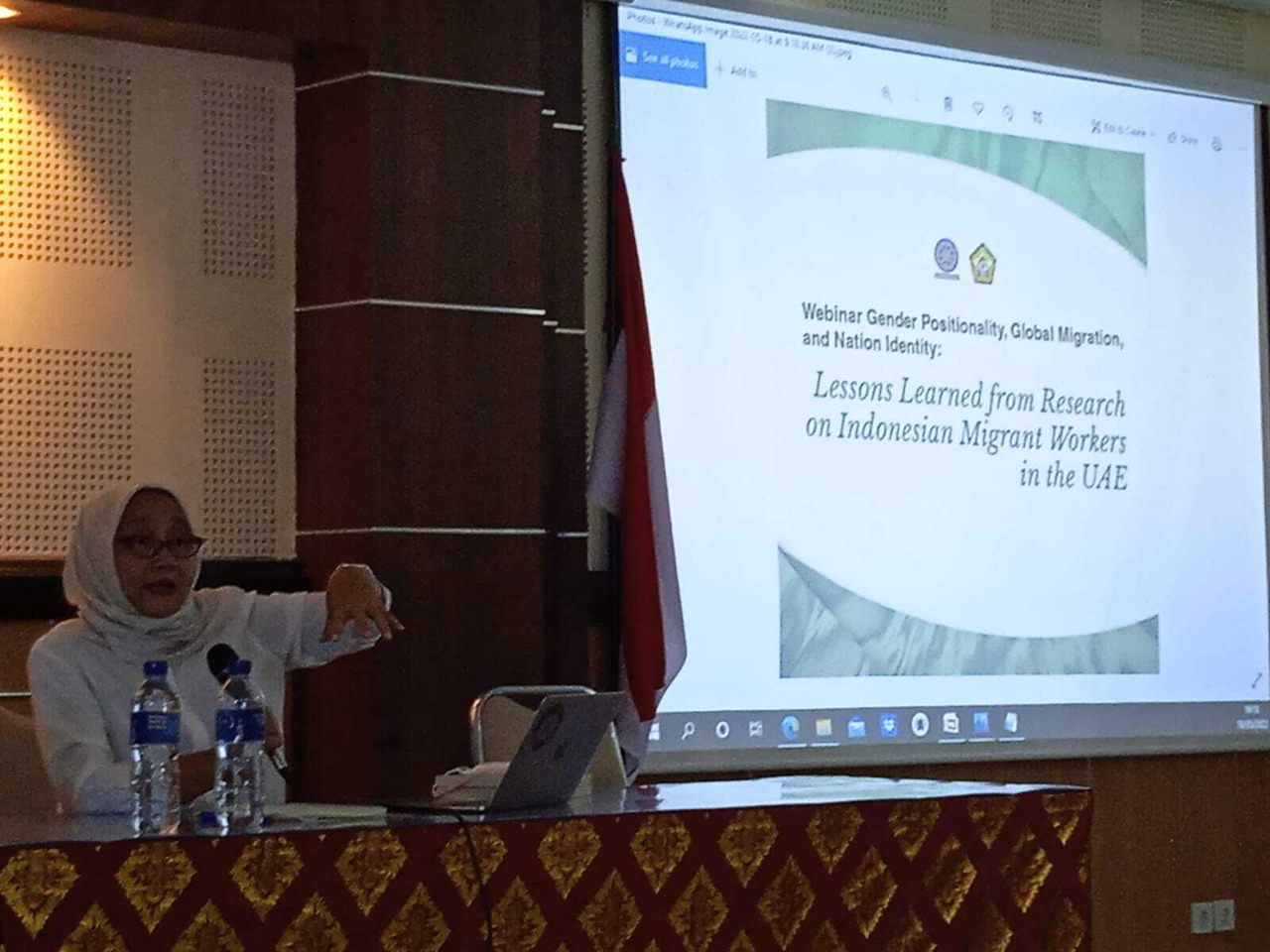FISIP UNUD Holds a Seminar on Gender Dimensions in the Problem of Indonesian Migrant Workers in the United Arab Emirates
On 18 May 2022, UNUD's FISIP International Relations Study Program held an offline seminar entitled “Gender positionality, global migration, and national identity: Lessons learned from research on Indonesian migrant workers in the UAE. This seminar was held based on research results based on data not only from the area of origin of TKI in Indonesia, but also from those obtained through direct interviews in the United Arab Emirates (UAE) with TKI, channeling agents, and also families who use TKI services. The research results have been published in the Scopus Q1 indexed journal. The speaker at this seminar was Dr. Titiek Kartika Hendrastiti, Lecturer in the Department of Public Administration, FISIP, Bengkulu University. This seminar is a form of cooperation between FISIP UNUD and FISIP Bengkulu University.
In the case of sending workers in the United Arab Emirates, there are a number of things that need to be noted. First, training for prospective TKI must be intensive so that prospective TKI already have the skills needed to work. This is important to prevent conflicts between employers and workers caused by work standards that do not meet expectations. Second, it is necessary to pay attention to providing protection for TKI, especially in the UAE, because in this country the management of migrant workers is under the Ministry of Home Affairs, not the Ministry of Manpower, so that protection and the scope of monitoring are limited. Domestic work is not categorized as a profession and is referred to as “helpers”. The rules that apply to them are the rules in the house where they work. Third, TKI do not have access to contracts based on UAE Government regulations to regulate employers, complaints, losses for “runaway” workers and so on. TKI are also completely unaware of the informal contract between the UAE agency and the employer.
This seminar activity is the first activity in collaboration between FISIP UNUD and FISIP Bengkulu University. In the future, cooperation will be continued in the form of joint research and lecturer exchanges.









